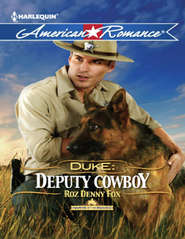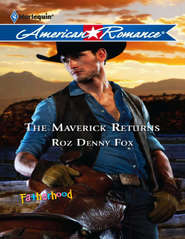По всем вопросам обращайтесь на: info@litportal.ru
(©) 2003-2024.
✖
More Than a Memory
Автор
Год написания книги
2018
Настройки чтения
Размер шрифта
Высота строк
Поля
Lost in her reading, Jo felt her heart race when the outer apartment door opened and Jerrold Cleary called her name. She met him in the empty living room. As a rule, his suits were impeccable, and she’d never seen him with a single iron-gray hair out of place. Today he looked rumpled and irritated. “Whatever crap you’ve unearthed, Jo, it’s better tossed out and forgotten.”
“Better for whom?” Jo never talked back, and the fact that she did now surprised both her and her visitor. Jerrold waved a dismissive hand.
“Better for your career. Your career is everything. You know your mother devoted her life to ensuring your success. I was going to pop by later with this fantastic news, but I think you need a boost now.” Jerrold took a paper from his inner pocket and passed it to Jo. “I’ve finalized arrangements for you to go on the European circuit this summer,” he said, all but preening. “And I negotiated three solos.” He wiggled three fingers under Jo’s nose, as though she might have misunderstood. “The pieces the conductor wants you to do are listed on the back of the schedule. You’ve played them all, but you need to start practicing until every note’s perfect.”
“You aren’t listening. What if I’m not alone? What if I have family somewhere?”
He tapped the schedule she hadn’t glanced at. “This is a huge coup, Jo. It’s just a shame your mother won’t get to see you play Ravel’s ‘Rapsodie Espagnole’ on stage in Spain. Hearing you solo on the European circuit was her lifelong dream. But you know that.”
Jo had difficulty taking in anything Jerrold was saying. And the ambitious itinerary she held might as well have been written in Chinese. “Jerrold, I can’t…go…on this tour.”
“Nonsense. I know violinists,” he stated in his typically pompous way. “You all get cold feet. But you, Jo Carroll, are the most naturally gifted virtuoso I’ve ever had the good fortune to mentor. With dedication I predict you’ll one day be as famous as Itzhak Perlman or Vladimer Spivakov. And as wealthy,” he murmured, straightening his tie. “You, my dear, will be world renowned. My only reward will be to stand in the wings of a sold-out house, watching the audience give my protégée standing ovations.”
“Jerrold, you aren’t getting it.” Jo thrust an award certificate at him. “Look at this. I don’t know if I’m Jo Carroll. Or am I this other musician, Colleen Drake? It’s too much of a coincidence that she looks like me and has the same talent. What if I’m her?”
Jerrold carelessly tore the certificate in half and dropped it. “Jo, you already knowyou’re a Drake. Does the first name really matter? After the accident, Sharon and I decided using her maiden name, Carroll, for your stage name would ensure you privacy. Sharon Carroll would have been famous had she not gotten pregnant with you and been forced to scrap her singing career.”
“Mother used to sing around the house.” Running a hand through her disheveled hair, Jo circled the nearly empty room. “Daddy made acoustic guitars. And fiddles.” She stopped midstride, aghast. “That…all came out of nowhere, Jerrold. Did Daddy make guitars? I swear Mother only ever mentioned his violins. Oh, but I could be way off base. Mother auctioned Daddy’s wood and his tools on eBay after I was released from the hospital.” Jo pressed her aching head to the cool window.
“Stop agonizing, Jo,” Jerrold snapped. “It’s this move and going through your mother’s things. I have no idea why you’re insisting on doing this now when you should be spending every minute practicing for the summer tour.”
“How can you talk about a tour when my life is in shambles?” Jo wadded up the schedule. She shoved the crumpled ball back at him. “I’m not going to Europe. I mean that, Jerrold. I’m going to follow up on what I’ve found. It’s bad enough that I lost my childhood, but this confusion about what I thought I’d restored…” She raked her hair out of her eyes, this time with a noticeably shaking hand.
“Don’t tell me no, you ungrateful little upstart,” Jerrold sputtered, his face an alarming shade of red.
At first Jo recoiled from his outburst. But midtirade she yanked open the door. “I’m not a child, Jerrold, so don’t treat me like one. I know this is all a huge shock, but something just isn’t right.”
“Of course,” he responded smoothly, plainly making an effort to curb his anger. All trace of irritation left his commercially tanned face as he pasted on a poor copy of his earlier smile.
Paying no attention, she said, “Mother gave you a key to our apartment. May I have it, please?”
“The key? Oh, very well.” He handed it over, but only after he straightened the wrinkled tour schedule and pressed it into her free hand. “We’ll get together once you’ve settled into your new studio. The plus side of this move is that it puts you closer to Jordan Hall. When the time comes, after the credits you gain in Europe, you’ll be able to audition with the BSO. I’m very close to booking you three hours a week with a master violinist who used to play with the Vienna Philharmonic. He liked the demo tape of your work. I know you’ll see this as an example of the great opportunities I can give you.”
He sped off, and Jo heard the clatter of his shoes on the stairs before she collected her wits enough to yell, “I’m not changing my mind, Jerrold!” The man ought to realize she couldn’t focus on her work when she had question after question tumbling inside her head and no satisfactory answers.
Why wouldn’t her mother have told her if they had family in Tennessee? Though she strained to remember, the terrible event remained elusive.
Jo assumed there were gaps in the history her mother rebuilt for her after she’d emerged from the coma. Two neurologists and a psychologist agreed she didn’t have retrograde amnesia, but rather dissociative fugue brought on by an intense desire to suppress something she couldn’t bear to face. Still, the accident and everything that came before it had been excised from her memory. And yet it made no sense that her mother would’ve told Jo about her dad’s death and not her cousin’s—if she’d had one. It was even less likely that Jo would’ve grown up privileged in Boston, and a sister in some obscure Tennessee town. A place called White Oak Valley. That simply didn’t make sense.
Logic told her that something was very wrong. But what if she started digging and found a truth so awful she’d wish it had stayed hidden?
She had pills for these migraines, but it had been a while since she’d needed them. She took one and lay down. When the pain eased she began to reflect on the number of times since the accident she’d felt disoriented—as she did now. The only cure was to immerse herself in music. Her violins were all packed, but she tore the box open. Soon the empty third-floor flat echoed with the rich, haunting sounds of Brahms’s “Tragic Overture.”
Jo played until her neck got stiff and the fingers of her left hand felt permanently curved around the violin’s slender neck. But when she finally set down her bow she knew the uncertainty would suffocate her if she allowed it. Whether it destroyed her career or not, she had to get answers.
LESS THAN A WEEK LATER, after consulting a travel agent, Jo pulled her mother’s ten-year-old Subaru off the road in Tennessee at a misty mountain overlook. It had been her original intention to sell the car, but now she was glad she’d kept it. Here she was, less than thirty miles from White Oak Valley.
The bravado that had carried her this far began to falter.
Jo had passed through Sevierville, and Gatlinburg, tourist towns the travel agent had circled on the map. The agent had pointed out that even at the end of May it was still early for the bulk of tourists who flocked to the area for fishing and local crafts.
Resting her arms on a waist-high guardrail, Jo glanced down andwas able to identify the silvery thread of a river far below—probably the same one she’d crossed an hour back. The view across the wide valley was partially shrouded by a lavender-gray haze that left Jo oddly breathless. The scene seemed vaguely familiar, as if she’d seen it before—perhaps in a movie or a magazine.
Shivering, she rubbed her upper arms. It was cooler here in the mountains than it had been when she left Boston. Frustrated that nothing had brought back any concrete memories yet, Jo returned to the Subaru, donned a cardigan and drove on to the tiny hamlet of White Oak Valley.
Beautiful full-blooming dogwood trees lined the main business street that seemed to bisect the small community. Most of these tired buildings had no doubt seen generations of residents come and go: the same families who still lived in the rambling older homes almost hidden by the towering trees.
White Oak Valley lay off the well-traveled tourist highway, and therefore didn’t seem to boast the chain restaurants and motels Jo had passed in Gatlinburg. That town’s claim to fame was a shrine honoring a TV show, The Dukes of Hazzard. Jo had never seen it; her mother always said TV wasted time. So, Jo gassed up the Subaru, but didn’t tour Cooter’s Place as the young station attendant suggested.
After driving from one end of White Oak Valley to the other, disappointment skidded through Jo. She’d expected something to trigger a breakthrough. Nothing did.
Her stomach growled. It was two hours past her normal lunchtime, and Jo decided to try a café across from the city park—Mildred’s, according to a weathered sign. Faded lettering on two plate-glass windows advertised sandwiches, soup, chicken and dumplings, and breakfast at any hour. Jo parked in front of an oldfashioned drugstore and walked back to the café. She pushed open a creaky screen door that released the enticing aroma of home cooking. A 1950s-style soda fountain with chrome-and-red-leather stools ran the length of the room, separating a steamy kitchen from a few tables and vinyl upholstered booths, all of which were empty. Freshly cut sweetpeas sat in fruit jars on every table. Overhead, three white fans would do little to cut the heat billowing from the kitchen once summer arrived.
Choosing a booth near the door, Jo helped herself to a menu tucked behind a remote selector for an ancient jukebox that was even now belting out a country song. She paused a minute and paged through the list of tunes, but realized she’d never heard any of them. Her musical repertoire consisted of symphonies by Beethoven, Schumann, Tchaikovsky and other classical artists.
A pregnant waitress about to pop the buttons off her aqua-blue uniform waddled up. “What can I getcha?” she asked, cracking her gum.
“A bowl of corn chowder and tea,” Jo said, thinking that would warm her up. “Anything herbal you have will be fine.”
The waitress turned and hollered toward the kitchen. “Mildred, we got any tea back there ‘cept the sweet tea Esther made up? We got a customer wanting herbal.”
A scrawny older woman, whose age was more apparent because of hair cut short and dyed jet-black, emerged from the kitchen. She took one last puff of her cigarette before crushing the butt in an ashtray next to the cash register.
“We’re plumb out of any but Southern sweet tea until I get to the grocery—Well, now.” The woman broke off and her jaw sagged even before she collided with the gum-chewing waitress. “Lawdy, if this don’t beat all. Everybody thought you was dead, missy.”
A shiver wound up Jo’s spine, and the menu slipped from her hand. “You know me?” she managed to ask.
At first the woman cackled in disbelief. But as Jo struggled to leave the booth, the woman—Mildred—backed away. “Don’t believe in ghosts,” she hissed. It was plain she didn’t intend to say more.
“Please,” Jo implored. “I’m not sure who you think I am. I recently discovered some high-school yearbooks from this town. I came here hoping for…I don’t know…information, I guess.”
“If you ask me, and nobody did, if you are Colleen Drake and you ain’t dead, you’ve got some explaining to do. Not to me, but to poor Garret Logan.”
“L-Logan?” Jo stumbled over the name. She shook her head to clear her thoughts. “I…my mother never mentioned anyone by that name.”
The woman’s top lip curled, and she took up a rag to start swabbing the counter. “No surprise there. With her puttin’ on airs and thinking you and her were better than anybody born in these parts? May the good Lord forgive me for being blunt, but this town and the Logans will be better off if you trot on back to whatever snooty place you been keeping yourself.” Mildred eyed Jo’s linen slacks and her matching purse and sandals, then proceeded to shake another cigarette out of a pack of Marlboros she dug out of her apron pocket. Lighting up, she blew a stream of smoke toward the ceiling.
Jo choked on the smoke. Her head began to throb, and she could hardly breathe. This woman couldn’t have known her mother if she thought Sharon Drake put on airs. Everything she did was to promote Jo’s career.
But it was pointless to argue. Instead, Jo left the café. Making enemies wouldn’t get her anywhere. And there was no question but that Mildred thought Jo owed this Garret Logan, whoever he was, an explanation or something.
Perhaps if she tracked him down he could clear up this mystery and she could be back in Gatlinburg before dark, having had a decent meal in a chain restaurant. If that was putting on airs, she was guilty of it, not her mother.
Reaching her car, Jo hesitated. She ought to ask Mildred where she could locate Garret Logan.
Fortunately, a boy of about twelve or thirteen passed Jo on a bicycle. He darted her a friendly smile, then swerved toward the city park.
“Hey,” she called. “You on the bike. I’m trying to find a man named Logan. Do you know where he is?”











